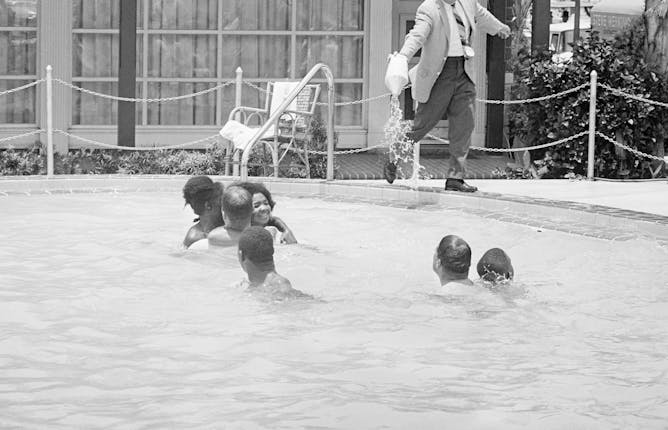
When a group of white and African American integrationists entered a St. Augustine, Fla. segregated hotel pool in 1964, the hotel manager poured acid into it.
AP Photo
Victoria W. Wolcott, University at Buffalo, The State University of New York
Municipal swimming pools flourished in the 20th century. But too often, their success was based on the exclusion of African Americans.
|

When it comes to a terminal diagnosis, how can families talk about the unthinkable?
A24
Nick Iannarino, University of Michigan
While 92% of adults feel that talking with their loved ones about end-of-life care is important, only 32% have actually done so.
|

Hotels and motels along major highways are common spots for sex trafficking.
Ken Stocker/shutterstock.com
Monti Datta, University of Richmond
While there's still a great deal that is unknown about sex trafficking, research studies and nonprofits have been able to gather telling data on this industry's victims and perpetrators.
|
|
-
Amit Tevar, University of Pittsburgh
The need for organs to transplant far exceeds the supply.
-
Mako Fitts Ward, Arizona State University
A recent gift by billionaire Robert Smith to pay off the student loans of 2019 graduates of Morehouse points to the potential of America's black elite to pay off all black students' college loans.
-
Jerome Goddard, Mississippi State University
Tick-borne diseases are becoming more common in the United States. A public health entomologist outlines some of the lesser-known threats ticks pose to human health.
|
|